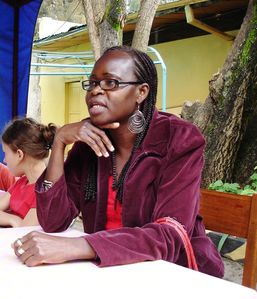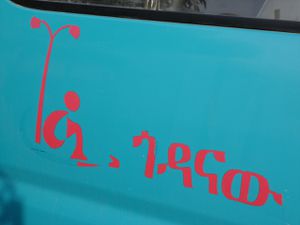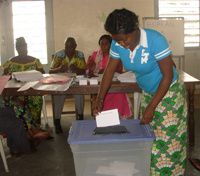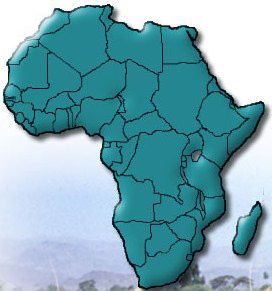INTRODUCTION, by FLORENCE SSEREO

In her student days, Florence was an active member of the Young Christian Students (YCS), a national leader of the Uganda YCS (1972-1985), coordinator of the Pan-Africa YCS based in Nairobi (1985-1986) and a member of the international team that worked in the International Secretariat of the YCS in Paris (1987-1991).
Florence, you are not indifferent to the initiative : Support to the emergence of civil society I Africa?
I fact we cannot of the existence of civil society in some cases, it is either absent or inactive
faster it is revitalized the better. Initiative of support are more than welcome.
You who has travelled extensively for a long time, including in Africa, can you tell us what you uderstand by civil society?
First and foremost we should state that civil society has always existed in Africa.
Individuals activists or groups, associations, syndicates and NGOs have a long history of existence in Africa since. These activists operated outside institutionalized political power structures, referred to as civil society. In the African context they constituted opposition group to colonial, military, totalitarian and one party political systems.
Do you agree that we can today speak of emerging civil societies in Africa ?
Yes, we observe that everywhere there is progressive increase in awareness about human rights and civic rights, and even some attempts at getting better organized to demand these rights. (1)
What Rights ?
Right to basic social services such as education, health, medical treatment, housing,…etc.
Civil society based on the principles of coexistence, tolerance, democracy and human rights. In a nutshell, today, the citizens are more than before thirsty of social justice.
But we are only at the beginning of a long process?
We have before us a long hard road to travel, a long process that calls for commitment, hard work and patience. Education in values does not come automatically, to demanding for basic social services requires knowledge about rights and obligations and, assess to written conventions, for example why not translate the Universal Declaration of Human Rights in all the languages of communication in Africa?
At the level of the United Nations there is a plan of action for human rights education, adopted by the General Assembly and for which UNESCO is the coordinating UN Agency.
The implementation of this plan of action takes place at country level. Each Member State is expected to incorporate elements of human rights in their educational programs, in the curricula and ensure that teachers have the necessary training to ensure effective human rights education at all levels of the system. At country level, in cooperation with civil society organizations, Ministries of education UNESCO promotes human rights education. Uses International Days such as 3 December, International Disability Day, 10December Human rights Day , 8March International Women’s Day for public awareness raising campaigns, and UNESCO supports advocacy for gender parity. The education for all week every year in April, was adopted by UNESCO General Conference to raise awareness and advocate for education for all as a right for all children and adults, which all Governments are expected to ensure.
Not forgetting concrete actions at country level, UNESCO also provides technical financial support, for example, the Cluster Office in Addis Ababa supported (in 2005-2007) in Ethiopia the Integrated Rehabilitation project, Gadanaw, initiated by Mr. Mulato Tafesse for street girls based in the slum area of Addis Ababa (2).

The project coordinator, Mr. Mulato, could not and did not want remain indifferent to the misery of his compatriots, he wanted to offer the street adolescents opportunity to improve their lives through education and live skills training.
He created a Rehabilitation shelter for the adolescent street girls.

To conclude this introductive note, as depicted in the picture above, there are signs of hope, that when civil societies in Africa will be better organized and sufficiently strong they will be able to effectively participate in elections, sanction national failing political leaders, fight corruption and election frauds and also ensure that governments are at the service of the governed!
Florence rejoint Thierry Michel : « Qu’elles soient exploitées par les grandes multinationales cotées en bourse ou par les opérateurs chinois, les creuseurs et les employés des mines risquent de se retrouver au chômage …mais, interviewé à l’occasion de la sortie de son film « Katanga Businnes, Thierry Michel constate : « Il existe néanmoins une revendication sociale. Au Katanga, il y a une véritable société civile, qui se met en grève, qui se révolte, qui interpelle le pouvoir politique » Jeune Afrique n°2510 -15 au 21 févier 2009
(2) Voir vidéo du centre et interview du responsable :
Dailymotion : Lève toi et marche !




